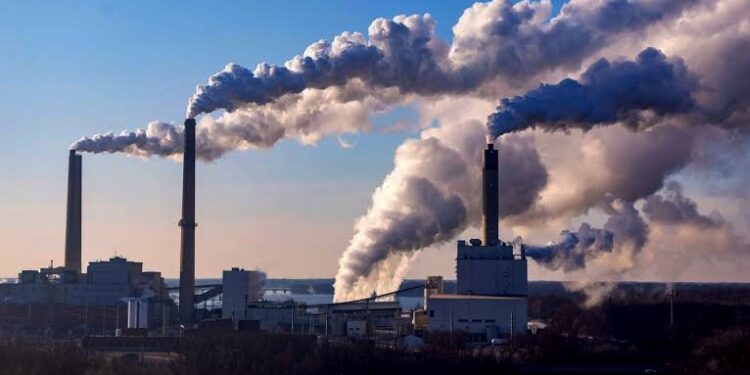By John Ikani
G7 ministers reached a consensus on Tuesday regarding the gradual phasing out of coal-fired power plants, aiming for completion by the mid-2030s.
While lauded by some environmental advocates as a significant move, others criticized the timeline as ‘too late.’
The gathering of Group of Seven members in Turin marked a pivotal moment following the global commitment made at the UN’s COP28 summit in Dubai last December to shift away from coal, oil, and gas.
In their final statement, energy and climate ministers of the G7 pledged to “eliminate existing unabated coal power generation from our energy systems by the first half of the 2030s.”
However, they allowed flexibility, suggesting that nations could adopt timelines aligned with maintaining a 1.5-degree Celsius temperature rise limit, in accordance with their net-zero strategies.
The statement also left room for coal power if emissions are “abated,” meaning they are captured or limited by technology, a stance criticized by many as unproven and diverting attention from reducing fossil fuel usage.
Comprising Canada, France, Germany, Italy, Japan, the UK, and US, the G7 faced challenges in settling on a fixed date, with some advocating for a 2030 deadline.
However, Japan, heavily reliant on coal, hesitated to commit to a specific timeframe.
Following a summit in southern Italy in June, the G7 leaders will issue their own statement.
What about gas?
The Paris Agreement of 2015 aimed to cap global warming “well below” 2 degrees Celsius above pre-industrial levels, with a preferable limit of 1.5 degrees Celsius. To achieve the latter, drastic emission reductions are imperative, yet they continue to escalate.
The International Energy Agency (IEA) has emphasized the necessity for advanced economies to cease all unabated coal-fired power generation by 2030 to attain net-zero emissions by 2050, a crucial milestone in curbing global warming.
Italian Environment and Energy Security Minister Gilberto Pichetto Fratin described the discussions as “intense,” highlighting the G7’s acknowledgment of climate change.
Luca Bergamaschi from the Italian climate think tank ECCO commended the G7 for taking a “decisive step forward” in implementing the Dubai agreement into national policies.
The commitment was hailed by the World Resources Institute as “a beacon of hope for the rest of the world.”
Nevertheless, Oil Change International criticized the G7, asserting they “have failed” their initial post-COP28 assessment, while the Climate Analytics policy institute deemed “2035 too late.”
Jane Ellis from Climate Analytics noted that “many of these countries have already publicly committed to phase out dates ahead of 2030,” emphasizing the negligible coal capacity in these nations.
Ellis also underscored the absence of mention of gas, despite its significant contribution to the global surge in CO2 emissions over the past decade.
Germany, the largest greenhouse gas emitter in Europe, and Italy, the host of the G7, remain reluctant to reduce gas dependency, opting to invest in new domestic gas infrastructure.
“Capable of contributing”
The G7 ministers announced plans to expand battery storage ‘more than sixfold’ by 2030, supporting electricity grids powered by renewable sources.
Addressing plastic pollution, the ministers engaged in a heated debate on designing an effective treaty to combat the issue, as plastic waste permeates diverse environments, from mountain peaks to ocean depths, and even human biology.
The debate centers on whether to prioritize reducing production or enhancing recycling efforts. The ministers expressed their ambition to reduce global plastic production, if necessary, and reiterated their commitment to ending plastic pollution by 2040.
Advocates for climate action emphasize the need for increased funding for climate change adaptation and energy infrastructure in developing countries, with attention turning to the G7 finance minister’s meeting at the end of May.
Emphasizing inclusivity, the ministers in Turin stressed the importance of engaging “countries capable of contributing” in efforts to raise funds to support climate change mitigation and adaptation.
Under a UN climate treaty signed in 1992, only a handful of high-income countries were obligated to provide climate finance. However, with China emerging as the world’s largest polluter since then, there’s a call for broader participation in financing efforts.
“By calling on other countries to contribute, we aim to encourage China to join us in this direction,” remarked Franck Riester, representing France on climate issues, in an interview with AFP.”




































